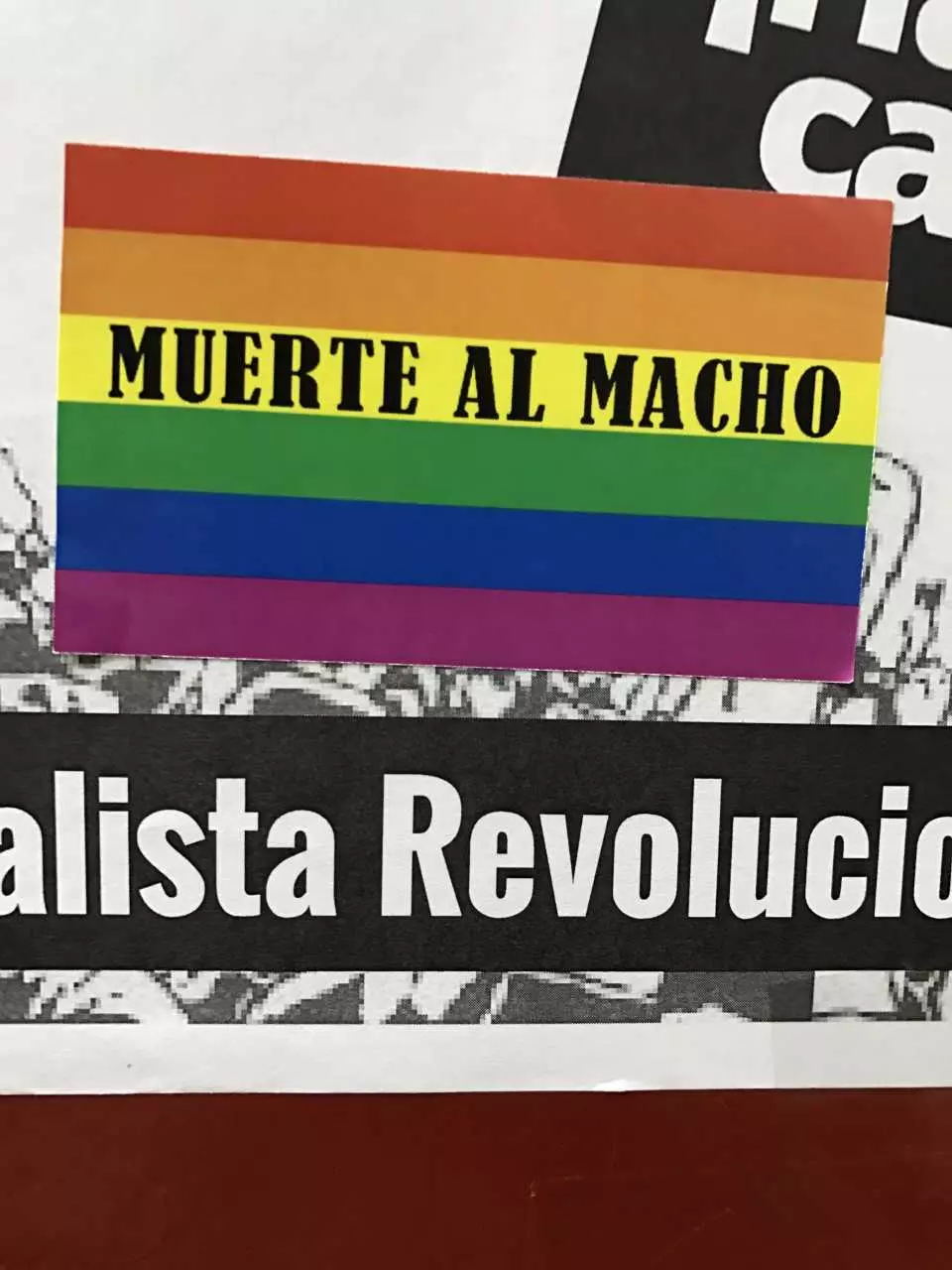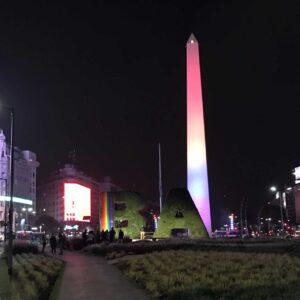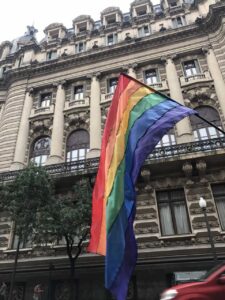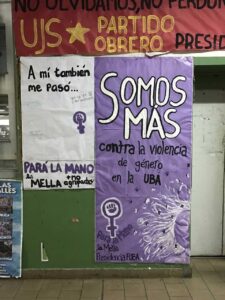On Nightlife, Drag, and Identity Expression in Buenos Aires


On Nightlife

It was around 3 AM on a Saturday morning in late March, and I was celebrating a friend’s birthday at Fiesta Whipin Almagro, Buenos Aires. I was dancing mindlessly on the club’s second floor when I noticed people stepping back to create a circle. In the center, a tall figure was swaying to the first seconds of “Bad Romance”, her leather boots almost as tall as her black wig was long. She began her number, lip-syncing fiercely to the music. The circle of people was cheering and singing along, oscillating to the rhythm. I did then what any respectable gay in the US would have done; I pulled out some cash and extended my hand into the circle, offering the meager bill to this queen of the night. She looked at the 50 pesos in my hand with a curious expression on her face, mimicked by the other faces in the circle. She took the money, then leaned her head back and yelled “I’m rich!” She thanked me quickly with a smile, and continued on with the song. For the rest of the night I tried to figure out why the interaction seemed odd, then I realized that I was the only clubgoer to tip a performer that night. As I was leaving the club a few hours later, I ran into the queen again. I asked her in my accented Spanish why she reacted how she did, and why others inside had looked at me so inquisitively. She smiled politely and told me that people rarely tip drag performers here. She extended her long arm into the street, hailing a nearby taxi. She stepped in and disappeared into the night.
On Drag

This is a mild example of a cultural difference between the US and Argentina, though it is illuminating nonetheless, as this difference sparked a change in how I understand my identity. Due to the cultural dominance of the television show Rupaul’s Drag Race, drag queens in the United States have been elevated to near demigod status. The queens who appear on the show are guaranteed a life of touring and special appearances all over the globe. While this indicates that drag is thriving as it moves to the mainstream, it can also be isolating for the everyday admirer. The stage separates them, it is a ubiquitous reminder of the distance between performer and viewer.
In Buenos Aires there is no such stage. Performers are surrounded by the crowd, not above it. They wait in the same line as you to get into the club, and when the night is over they hail a taxi beside you on the curb. These queens don’t do drag for the money or the fame, they do it for themselves. This slight difference in drag culture sparked a change in me and in the ways I express my identity.
On Identity Expression

I have lived as gay for over seven years, and for many of which I was the only LGBTQ+ person I knew. I did not have queer friends or mentors until college. Since I began university that has fortunately changed, and I’ve been able to come into my own much more.
When deciding to study away, I knew Buenos Aires was the place for me because of its reputation as one of the most gay friendly cities in the Americas. I took advantage of this openness as often as possible while abroad, and one important effect has been a growth in how I understand and express myself. Surrounded by beautiful people who aren’t afraid to dress how they want or act how they want has made me realize, that I can do the same with my life. Before abroad, I had always been afraid of appearing gay on the outside. I wore clothes associated with masculinity and was scared
by anything outside of that norm. In Buenos Aires I was exposed to so many people who lived outside that binary that I made the decision to express myself how I wanted to, not how society expected me to. So far these have been relatively small changes, like wearing rings and scarves and other regalia I had secretly always wanted to adorn myself with. My immersion in a new environment allowed me to begin a process of reflection about
myself that I had not even considered before. This process did not end after I came back to the US, but I am indebted to Buenos Aires for beginning the journey.
Ellis D. | Macalester College | Argentine Universities Program in Buenos Aires, Argentina